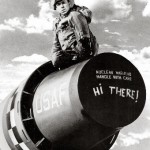Spring 2016 Seminars
Global Sustainable Human Development
MLS 501-001 Williams Hall, Room 2405
Dr. Bob Patterson
Wednesdays 6 – 8:45 PM
How do individuals, communities, and nations partner to achieve increased freedom of choice – the freedom to choose one’s preferred path to achieving one’s hopes and dreams? What is required for sustainable human development to occur, both in more – and less – industrialized societies? How can we know when we are “partnering-in-development” in a sufficiently healthy way so that increased freedom of choice is happening for all partners? Our premise is that poverty and hunger are not inevitable, but can be overcome only through a process of sensible, local, community-centered, and transparent development. We propose that ownership of the development strategies being planned, funded, implemented, and evaluated at the most local level is the only viable approach to sustainable human development. Our time will be invested in identifying the strategies most likely to lead to elevated freedom of choice for all partners seeking to break the poverty-hunger cycle so endemic in much of our world. Readings from: Dead Aid, The Aid Trap, Where Our Food Comes From, “One Billion Hungry: Can we feed the world?”, and Feeding a World of Ten Billion People.
The Art of War
MLS 501-002
Dr. Catherine Mainland
Mondays 6 – 8:45 PM
Whether nations win or lose, war has always left its mark on the arts. This course will take a comparative look at artistic responses to the American Civil War, World Wars I and II, the Cold War, the Vietnam War, and modern military campaigns. Through our examination of the history and social psychology of war, we will pay constant attention to the infinitely human urge to use art to deal with the inhumane, comedy to combat tragedy, and story-telling to work through feelings of guilt, loss, inadequacy, or doubt. With readings of poetry, drama, and prose from the nineteenth and the twentieth centuries, as well as movies and television shows, we will explore the ways in which humans deal with wars and their aftermath by placing them (safely?) in the artistic realm.
We will study works such as: Twain, Adventures of Huckleberry Finn; Bierce, “Chickamauga”; British poetry of WWI; Remarque, All Quiet on the Western Front; Camus, The Plague; The Producers (1968); Dr. Strangelove; O’Brien, The Things They Carried; and M*A*S*H* selected episodes.
